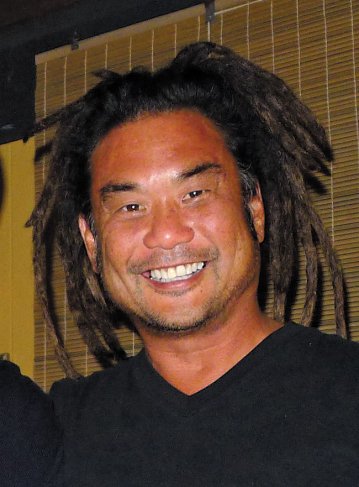Clinical Healing In The Waves
Dr. Kevin Lee Fujimoto
Licensed clinical psychologist
Where did you receive your schooling and training?
I received my doctorate in clinical psychology from Pepperdine University and my master’s in developmental psychology from Columbia University Teachers College. I completed my postdoctoral training at Long Beach Child Guidance Center and my internship at HELP Group, New School for Child Development. I’ve also received training at Sarah’s Sex Abuse Center, San Fernando Valley Juvenile Hall and Pepperdine University Counseling Center. In New York, I worked at Cabrini Medical Center in the psychiatric department.
How long have you been in practice?
I have been in practice in Hawaii since 2004. I have a private practice in Kaneohe, I work for the Department of Education (DOE) as Farrington Complex clinical psychologist, and I am the interim executive director for Surfrider Spirit Sessions (SSS). SSS is a nonprofit organization that works with at-risk and adjudicated youths, where we provide adult one-on-one, peer and group mentorship with surfing instruction, Hawaiian culture education, environmental awareness and malama aina.
What is your specialty in the field of mental health?
My specialty is children and adolescents. Most of my private practice caseload is kids and families, though I have some adults and couples as clients as well. As far as mental health issues, the areas I work with include major depression, anxiety, oppositional/defiant disorder as well as post-traumatic stress disorder and divorce/separation issues. The work is challenging, but very rewarding.
In my work with the DOE, I am in the School Based Behavioral Health program and supervise eight behavioral health specialists throughout Kalihi. These specialists take on students with more severe issues than school counselors do. Students may have issues related to oppositional defiant disorder (a mood disorder), autism or Asperger disorder, ADHD, cognitive deficit or learning disabilities, to name the most common. Each specialist has a typical caseload of 20 students, and they also provide consultative support to the schools.
I also assist schools with larger, schoolwide interventions. For example, if a student unexpectedly dies, we coordinate with the school administration to provide supportive services to students and, if desired, to teachers, other school staff personnel as well as the family.
In the Honolulu District, there are six complexes (Kaiser, Kalani, Kaimuki, McKinley, Roosevelt and Farrington), each with its own clinical psychologist. Each complex also has a diagnostic team. We do evaluations and consultations to assist the schools with students who may have academic, behavioral and emotional issues.
Can you talk more about the work you do with Surfrider Spirit Sessions?
Since 2006, we’ve been working with at-risk and adjudicated youths ages 13 to 18 at Waikiki Beach. Our goal is to empower these kids to make better life choices, and see that they can have a positive impact in their families, in their schools and in their communities.
Our core programs run for eight Saturdays during the spring, summer and fall, when there are waves on the South Shore. A program day is four to five hours, and each boy and girl is matched to their own same-sex adult volunteer mentor. During our day, we have a theme, such as challenges, choices or being humble. We focus on this theme during a surf session, then later, while sitting with their mentor or during our talk-story time in the group, we discuss how the theme played out, specifically with their surf session, but also how it may play out in their lives in general.
During the day, we also give a lesson on Hawaiian culture or environmental awareness. These, too, are designed to help the kids find greater meaning and connection to their world and those in it. For example, we have lessons that explain the root words that make up “Aloha” – alo, meaning “to reciprocate,” and ha, meaning “the breath of life” or “life energy.” We take that information and try to instill how to live at all times with the spirit of Aloha.
We have the kids find that positive spirit they accessed through surfing that was experienced with another caring person, their mentor, and we have them reciprocate or give back by malama aina, or taking care of the land. We do a beach cleanup at the end of each day to give back.
The kids also experience giving back during our community-service days, when we partner with other youth agencies such as Kids Hurt Too. Our kids serve as positive role models themselves as they mentor younger at-risk and needy youths in the water and on the beach.
Surfrider Spirit Sessions is hosting its inaugural benefit golf tournament, “Surf to the Turf,” Feb. 28. To learn more, or to sign up, visit surferspirit.org.






